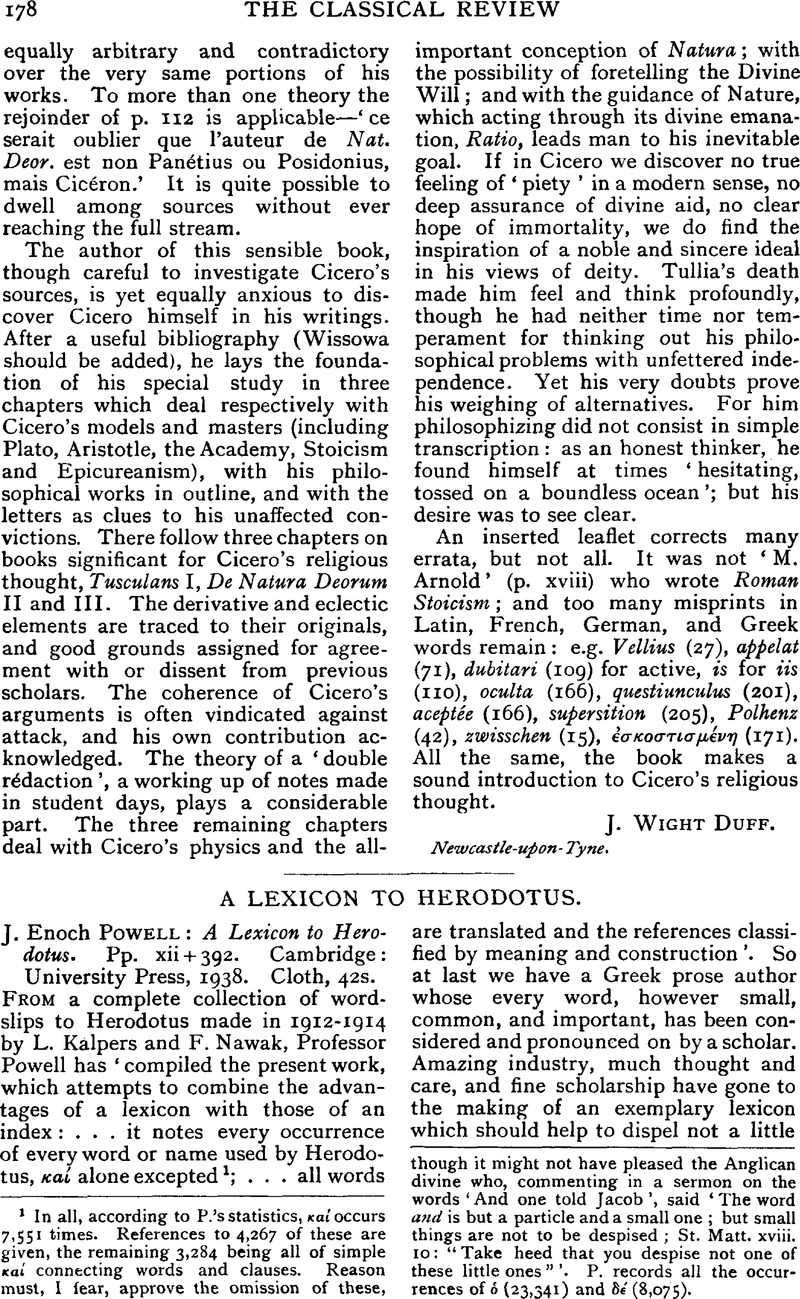No CrossRef data available.
Article contents
A Lexicon to Herodotus - J. Enoch Powell: A Lexicon to Herodotus. Pp. xii + 392. Cambridge: University Press,1938. Cloth, 42s.
Published online by Cambridge University Press: 27 October 2009
Abstract

- Type
- Reviews
- Information
- Copyright
- Copyright © The Classical Association 1938
References
page 178 note 1 In all, according to P.'s statistics, καί occurs 7, 551 times. References to 4, 267 of these are given, the remaining 3, 284 being all of simple καί connecting words and clauses. Reason must, I fear, approve the omission of these, though it might not have pleased the Anglican divine who, commenting in a sermon on the words ‘ And one told Jacob ’, said ‘The word and isbut a particle and a small one ; but small things are not to be despised ; St. Matt, xviii. 10: “Take heed that you despise not one of these little ones “’. P. records all the occurrences of ό (23, 341) and δé (8, 075).
page 179 note 1 The few misprints I have noticed can be had by the publishers on application. One regret I have is that no distinction has been made between book-numbers and chapternumbers.
page 179 note 2 This is indicated, though not proved, to my mind, (a) by the context, (b) by PL Mx. 237d, reinforced by Hdt. iv 106, (c) by the fact that only by assuming that νομιζειν θεούς was sometimes used in the former or a kindred sense (as Dio Chr. supposed it was in Meletus' ⋯νΤωμοσία) can we readily account for the strange ‘omission’ of existential ςἶναι involved in the use, not to be denied, of θ.ν. = θ.ν. εἶναι (whence apparently ⋯γεῖσθαι θεο⋯ς which per se seems hardly more natural than Milton's ‘Unless there be who think not God at all’, though καΤΤà ⋯уημ⋯να in Orac. ap. Dem. 1072 fin. is puzzling—and perhaps deos putare, deos credere).


